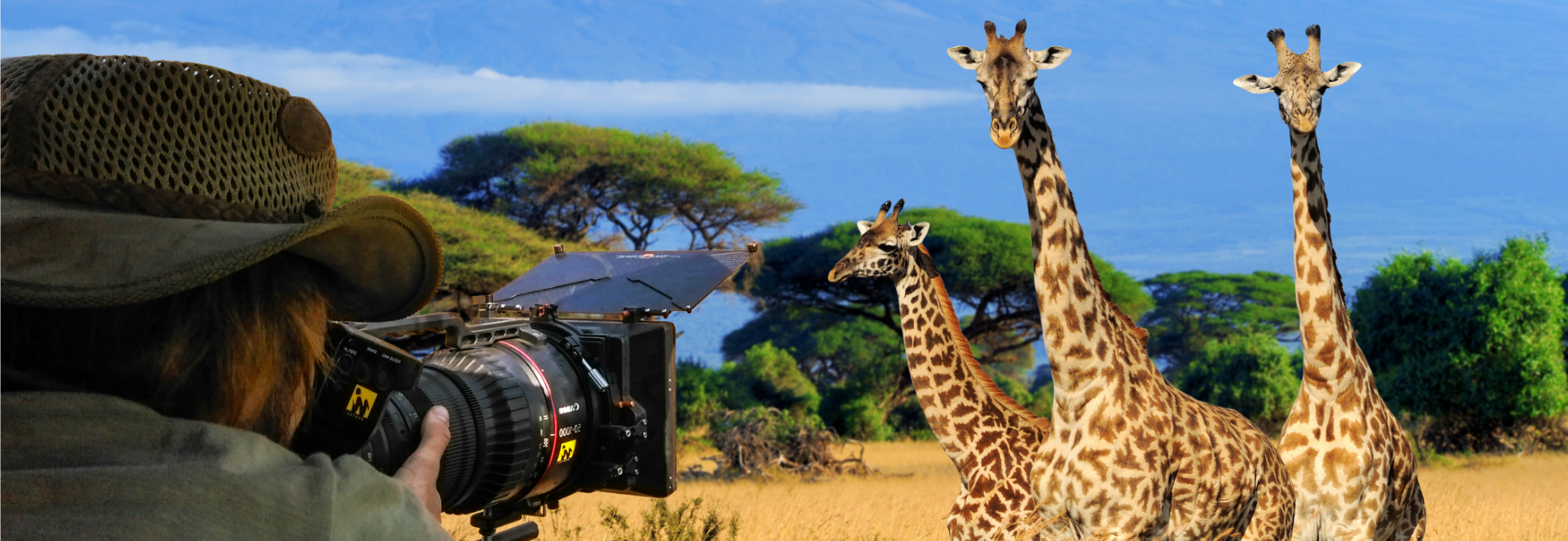Armed with just camera gear, Julian Braatvedt spends his days getting up close and personal with wild dogs, elephants and gorillas.
He is living his childhood dream, says Julian who now works as a wildlife cameraman.
“I love the fact that when you go out there and you’re filming, it feels like you’re part of nature, you’re not just observing it. It’s pretty special – things like seeing hyena cubs come out of their den for the first time, or seeing an osprey take its first flight. That’s the sort of thing that the viewer gets to see, but we’re there experiencing.
“I’ve always had a passion for Africa, and now almost all of my work is based in central and southern Africa. When I’m filming things like gorillas in Rwanda I can’t help thinking how amazing it is that someone is actually paying me to film this. For me, this is a childhood dream come true.”
There have been many highlights in his five years as a wildlife cameraman.
“One of the things I’m particularly proud of was filming wild dogs and hyenas for National Geographic Channel’s Africa’s Hunters. Wild dogs are historically difficult to film, and I’m very proud of the footage I’ve managed to get for Africa’s Hunters. My next project will be a wildlife rescue series filmed in Malawi.”
While there is worldwide demand for amazing footage of animals in the wild, the AUT communications alumnus wanted to take his work one step further.


“I love the fact that when you go out there and you’re filming, it feels like you’re part of nature, you’re not just observing it. It’s pretty special – things like seeing hyena cubs come out of their den for the first time, or seeing an osprey take its first flight. That’s the sort of thing that the viewer gets to see, but we’re there experiencing.”
“In addition to my work, I’ve also created the short film Elephant I Miss You, in conjunction with the Lilongwe Wildlife Trust. This is a passion project, focusing on creating a conservation dialogue with local African communities.”
“In Malawi, elephants are expected to become extinct in 10 years’ time due to poaching, and my film aims to encourage Malawians to look after the elephants for future generations. I scripted the film in English and then had it translated into Chichewa, the local language. It’s being shown around national parks and we’ve been getting good feedback from the communities.”
However, becoming a filmmaker wasn’t always Julian’s plan.
“When I applied for AUT’s Bachelor of Communication Studies, I thought I wanted to become a war journalist. It was only a little later that I realised it wasn’t the right choice for me, and by my second year at AUT I knew that I wanted to pursue documentary filmmaking as a career.
“I had always loved wildlife but thought of it as a passion rather than a career. It’s a small industry in New Zealand and it was only when I went to the UK after graduating that I realised how big the industry is.”
The recipient of a Vice- Chancellor’s Significant Student Scholarship to study at AUT, Julian says the great thing about a communications degree is that it’s so broad.
“I think what made communication studies such a good degree for me is that we covered a wide range of mediabased skills. We didn’t have to specialise until later in the degree and it gave me a chance to explore radio, public relations, journalism and short film. Ultimately I think it gives you a broad base of careerrelevant skills from which to start a media career.”
Website: julianbraatvedt.com

